Warning: Illegal string offset 'source_type' in /home/mychutej/public_html/blog/wp-content/plugins/egany-facebook-to-wp/egany_facebook_to_wordpress.php on line 1099
Today’s Ebola story takes us to the frontlines in Sierra Leone where a team of Nigerian volunteers are on hand to combat the deadly disease. We often think of Ebola volunteers as those who work in the treatment centers alone. However, treating Ebola is much more than rehydration therapy and bed rest; survivors need to be reintegrated back to their societies and be helped to get over the trauma of losing loved ones.
One group of volunteers who perform this little known task is the Psychosocial Unit of the AU-ASEOWA Ebola Response. Appolos Esobonata, a 28 year-old man who worked as a Humanitarian and Psychosocial Officer during the response shares his experience.
Q. What organization were you working for in this Ebola response?
I worked for the African Union – African Support to Ebola Outbreak in West Africa (AU-ASEOWA)
Q. How did you join the Ebola response?
I joined the Ebola response during the Ebola outbreak in Port Harcourt, Nigeria. I worked in communications and social mobilizations where we embarked on massive sensitization across the city and in the nearby villages. However, when the treatment center needed more workers, I volunteered and was trained extensively as a Hygienist by the MSF.
Q. You worked as a Humanitarian and Psychosocial officer in Sierra Leone. How come?
I was actually posted to work as a public health officer with the burial team as a Hygienist but on arriving the mission area, I discovered that there was gap – the psychosocial officer posted to the Tonkolili district needed assistance. The AU-ASEOWA policy stated that we work in pairs, so I decided to join her.
Q. You were extensively trained as a Hygienist in the Ebola response in your country, how did you cope with working in Psychosocial/Humanitarian department in Sierra Leone response.
I have always believed that life is most enjoyed by flexible and multi-dimensional people. For the past five years, I’ve been running an organization in Nigeria where we do a lot of counselling and workshops for the youths and was the assistant chaplain of my college for three years. I believe these experiences prepared me for the psychological needs that were required in this Ebola response.
Q. Describe your experience with patients.
Working with the Psychosocial Unit, I’ve come to learn the need for patience in counselling traumatized people. Some victims find it difficult to cope with the trauma, especially those who lost loved ones to the outbreak.
For survivors who lost many of their family members, we kept them in a special place upon their arrival from treatment centers for at least three days. During those days, we counseled them while at the same time trying to locate their families or care givers (in the case of double orphans) before reintegrating them into their communities. We have always found out during our subsequent visits to these survivors, most of them were doing fine except for those who experienced strong stigmatization and rejection.
Q. Describe your working conditions? Were they optimal?
To work in this sensitive aspect of human life, you needed to disabuse your mind from working under optimal conditions. We often worked in challenging conditions; whether or not you’re notified, you must attend to the survivors when they arrive. We often traveled for hours on bad, hilly roads in order to return these survivors home. There were times we returned home late at night hungry.
But we had great times through these hard working conditions because we learnt a valuable secret which was that we did not concentrate on the difficulty of the work but tried our best uld to have fun in the midst of the work. And I can affirm that I enjoyed working in this aspect of the response because we had time to pay attention to one area which was almost ignored by the international communities.
Q. Can you highlight some of the factors you think contributed to the spread of the virus in Sierra Leone.
When EVD first broke out in Sierra Leone, the first factor behind its spread was Politics; people thought that the government has introduced what they will use to steal money and that in the areas where it started that the government wants to depopulate those areas so that in the next election they would not have populations to vote.
Cultural Practices also played a role. Even in areas where this invisible enemy has ravaged, people still did not believe it’s a reality. This frustrated all efforts to make them put a hold on some cultural practices like washing dead bodies, visiting and touching the sick etc.
In addition, Illiteracy helped further the spread. Since majority of the people here are not educated, they found it difficult to understand what EVD was, how it could kill in a short time and what social mobilisers were saying about hand washing.
Poverty and Poor Health Systems were without doubt implicated in EVD spread. Universally, the poor have little or no respect to life and do not have much to live for. If you tell a rich man that a thing can kill, he would try to avoid it because he has a lot of things to protect and live for. But for the poor, the opposite is usually the case.
Q. Were you ill-treated on account of your skin color?
No. In-fact, when we arrived the mission area on 5th December, 2014, there were whites already on ground but specifically in the district where I worked, the people expressed gratitude upon our arrival. They believed that African problems could only be solved by Africans.
The bulk of the success of the Psychosocial Unit in TONKOLILI DISTRICT was largely due to the tremendous support we got from the DERC and the Ministry of Social Welfare, Gender and Children Affairs.
Q. Is it true that black patients were treated differently from whites in terms of healthcare?
As much as I know, we had no white patients in our treatment centers and most, if not all the survivors attested to the fact that they were well taken care of by even the white healthcare workers. They recalled their services as highly professional and courteous.
Q. Any regrets about working with Ebola survivors?
Not at all. I had a great time working with survivors.
Q. What’s your greatest concern for Ebola survivors and their families?
My greatest concern is to see these people back to their feet, especially the children orphaned by Ebola. The best the government and the International Community can do is to pay close attention to their needs of education and daily welfare. Those who would like to start businesses should be supported financially. Finally, all survivors should be continually followed up to know how they are faring in all matters including how they have well integrated into the society.
Interview by Imo Chinasa
Imo Chinasa is the head of the AU-Psychosocial/Social Mobilization Pillar in Sierra Leone.
Don’t miss out on Ebola stories from Sierra Leone. Click here to subscribe and get an email notification every time we post a story.
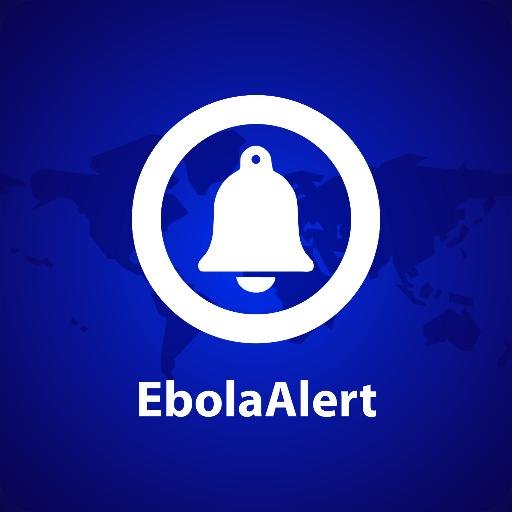
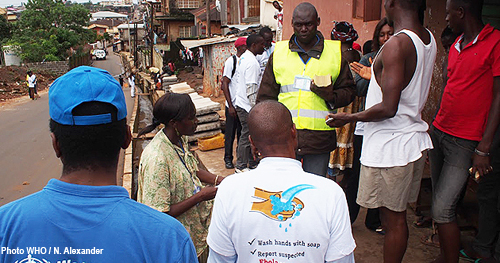
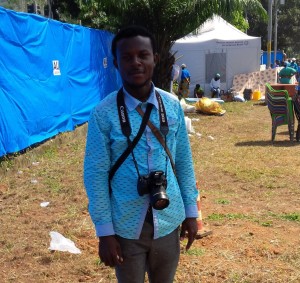


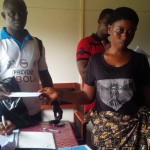
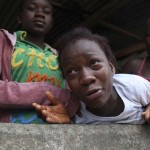
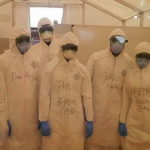






May 27, 2015 at 3:25 pm
Great works Chinasa
July 1, 2015 at 2:15 am
Awesome site, great info.